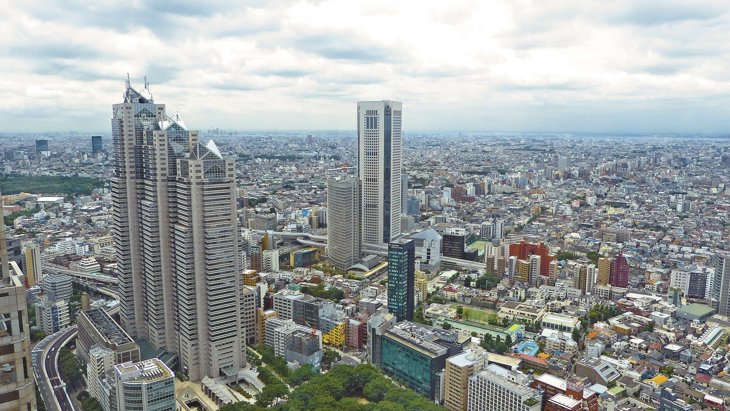
Takahiro Ono: In Japan, the government created a state of emergency in early April. To avoid the collapse of the medical care system it was important to prevent further infections, so the government put together a key phrase of “let’s prevent three dense.”
This three dense refers to a closed space with poor ventilation, a place where many people gather, and a situation where people are close to each other.
“Meetings are now being held online, although
people are not used to it.”
As a result, many companies have been working staggered hours and changing commuting times to avoid crowded trains or subways.
There has also been a reduction in the number of employees working at the office to around 20% which means that 80% of people are now working remotely. Meetings are now being held online, although people are not used to it.
Takahiro: We support clients in both insurance risk finance and risk consulting, but as we do not provide business interruption coverage for coronavirus, we have been focusing more on the risk consulting aspect.
At the beginning, of course meetings, etc. were cancelled and postponed but we have felt that if the situation continues for one or two months more, further delays to products will become intolerable both from our side and the client side.
"There are many clients who are confused as to how to balance
business continuity and the infection."
This would affect the sales and profits overall, so we have restarted the project by omitting certain steps and processes.
There are many clients who are confused as to how to balance business continuity and the infection, as this is their first experience with such an unprecedented health crisis. So, we have tried enhancing our communications with them online to help as best we can.
Takahiro: Soon, it will be necessary to review the work processes related to “movement, contact and gatherings” within both the organisation and in social life.
Any part of the industry that relates to contact, gatherings and movement will have to be reformed and reviewed to work with the new normal.
"In the coming era, we will disappear if we do not adapt
to the new environment."
Some people feel that the work style reform and the improvement of related business processes and models will be immediate, but implementation and adoption will be extremely slow. This is because the traditional systems are blocking the way.
With the coronavirus pushing these changes forward, most people feel that the future came early. We have learnt that in the coming era, we will disappear if we do not adapt to the new environment.
Added to this, Covid-19 has accelerated the adoption of disaster prevention and business continuity plans in Japan, a country hit by many natural catastrophes as of late.